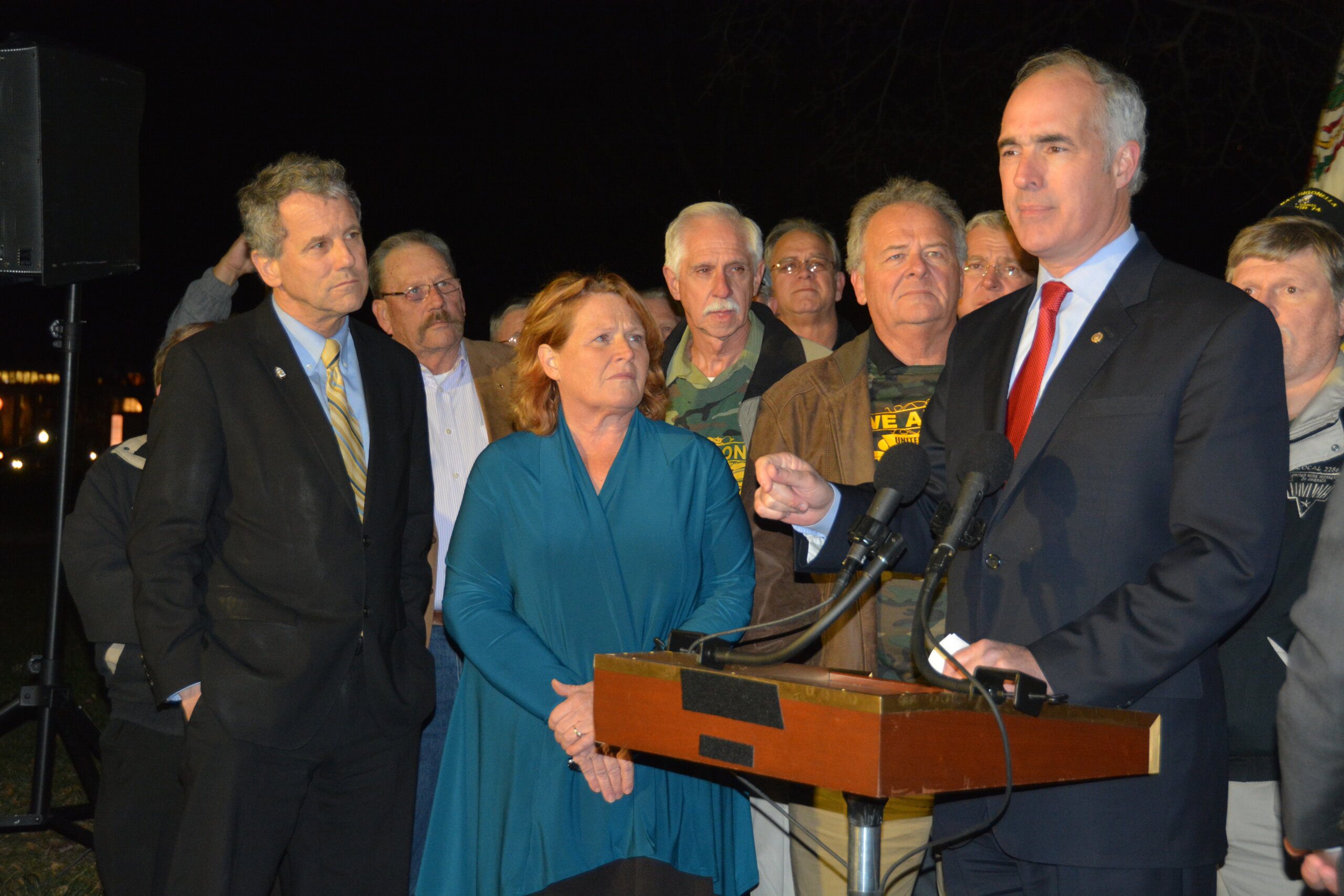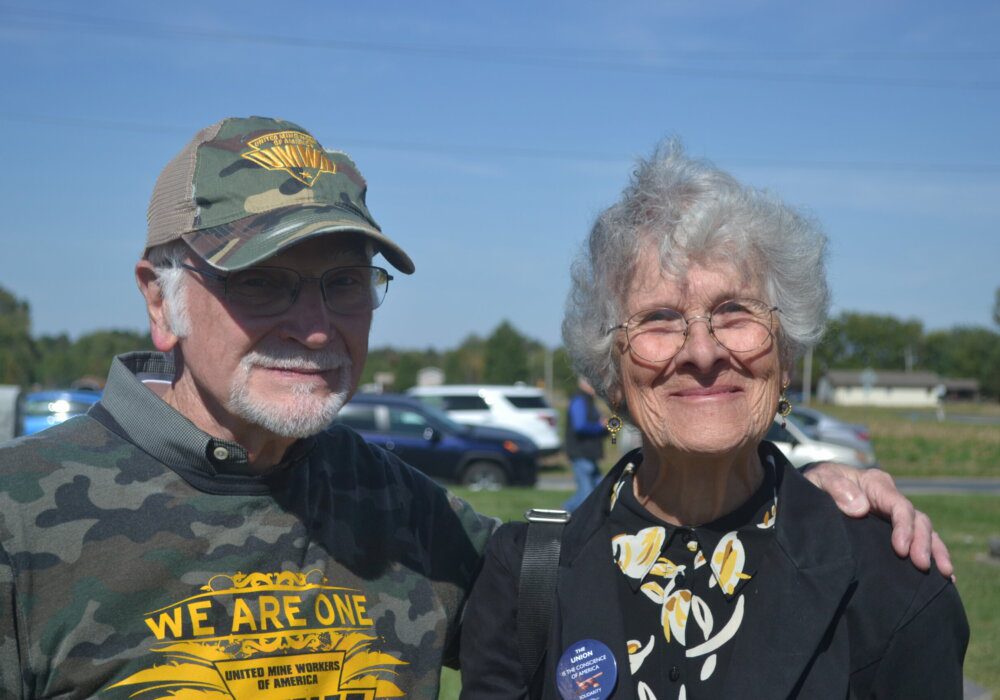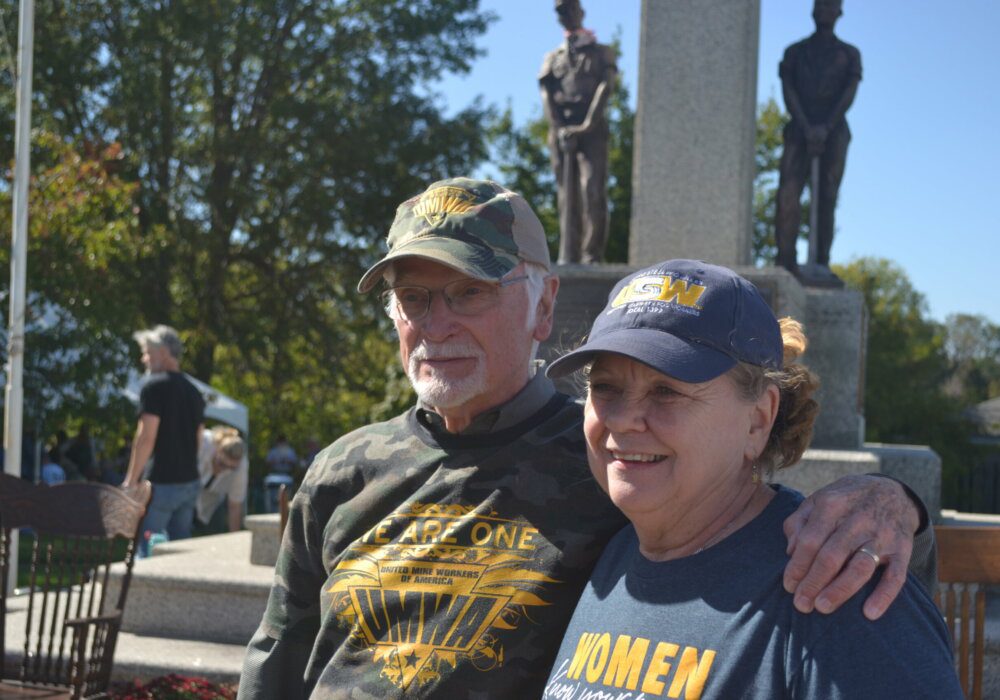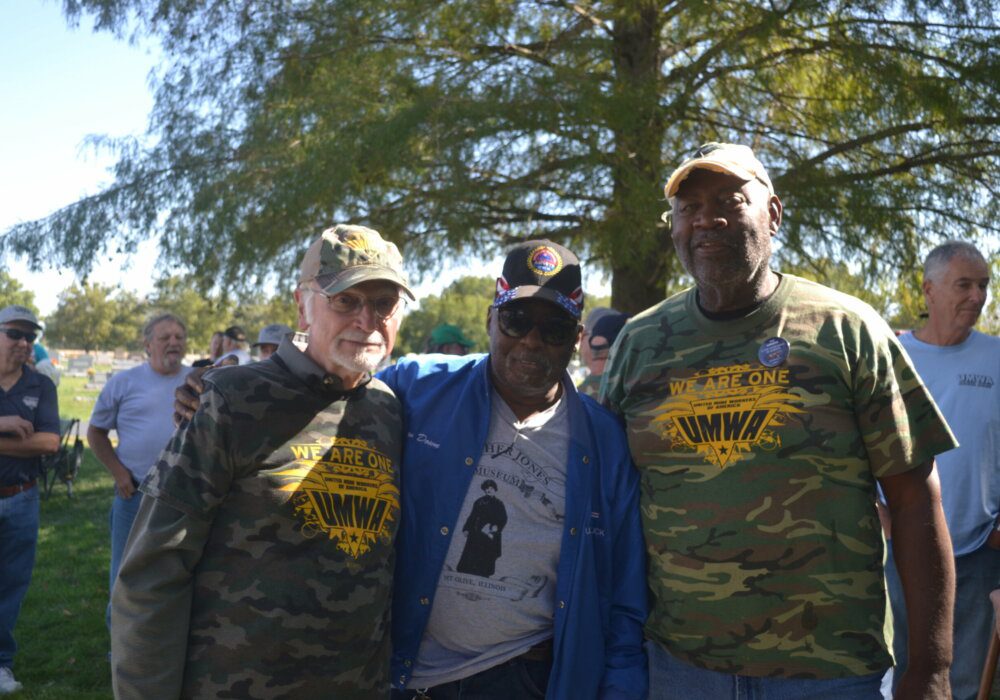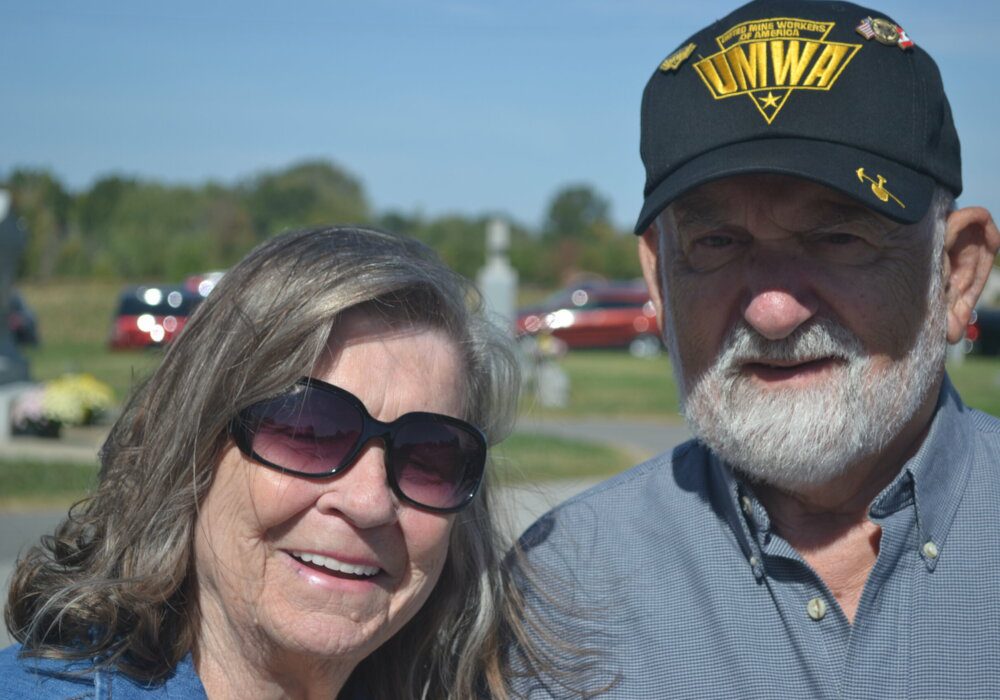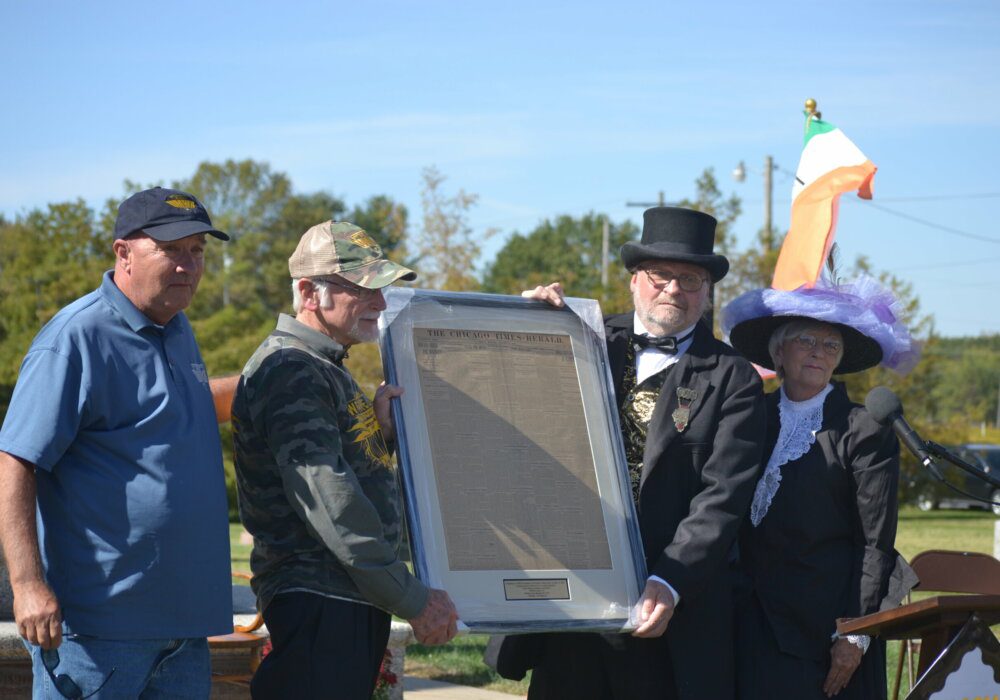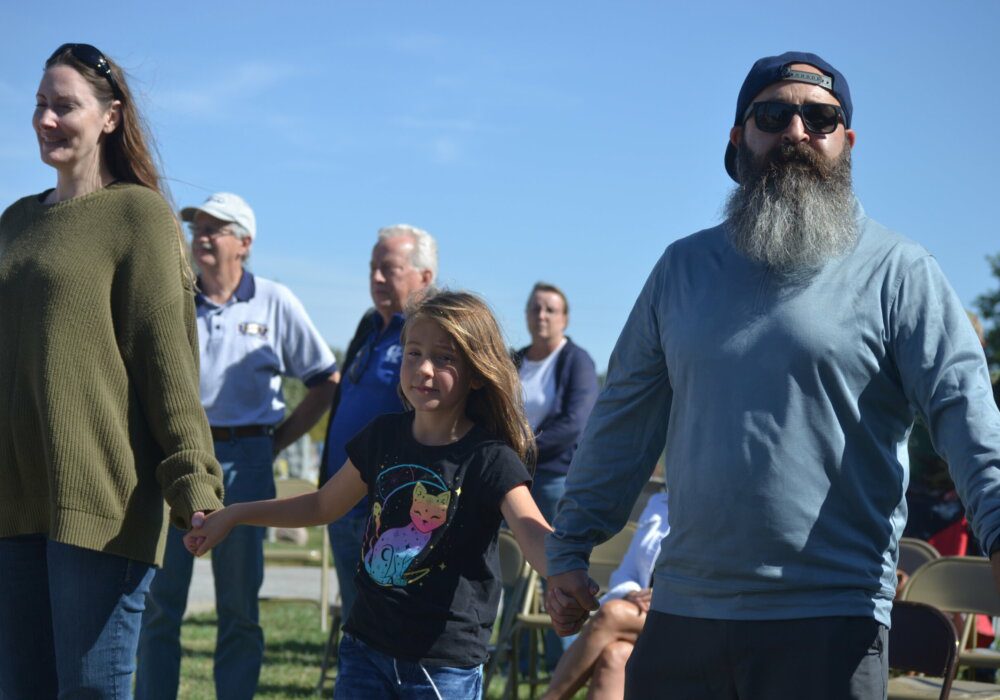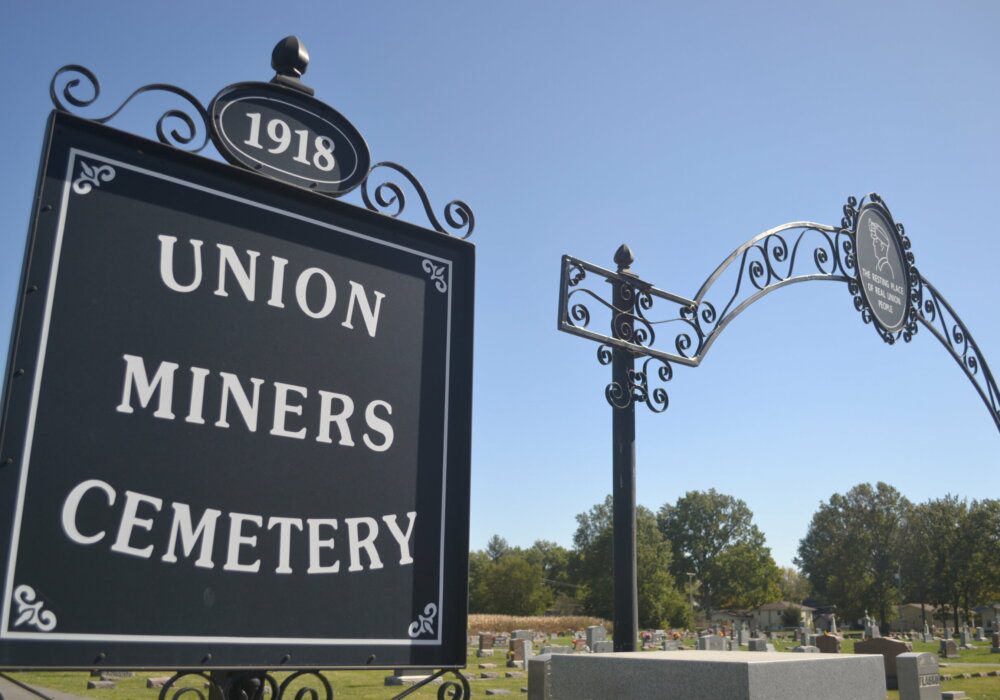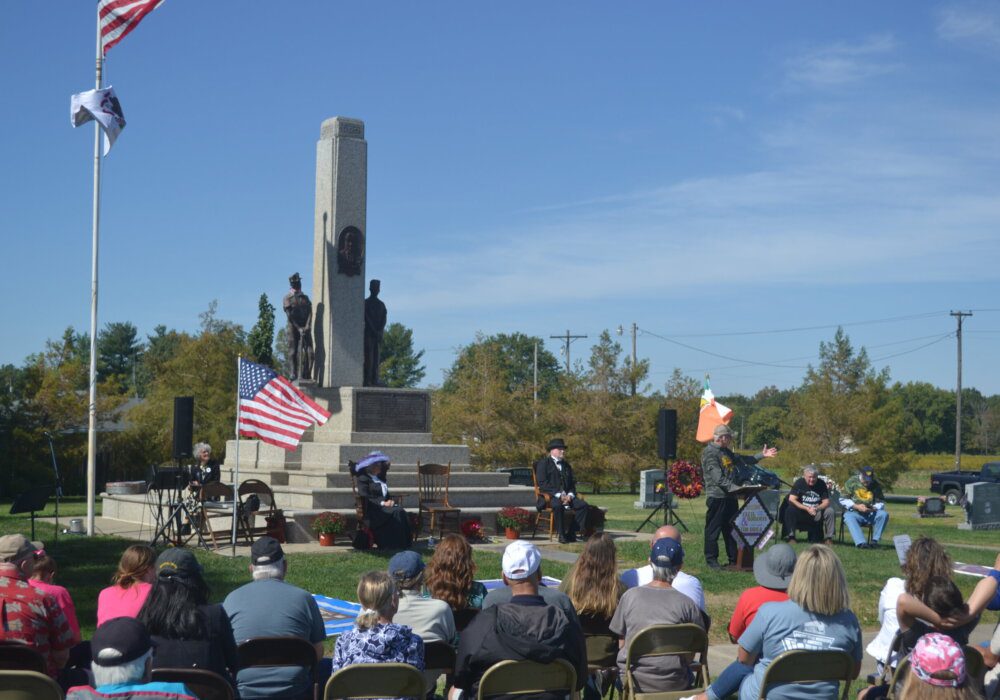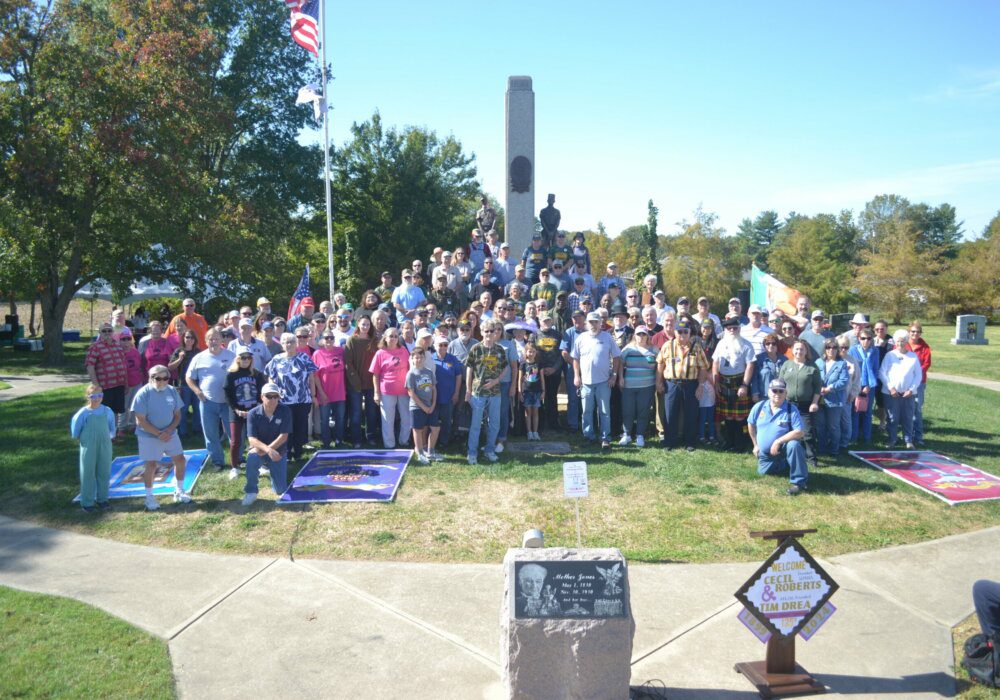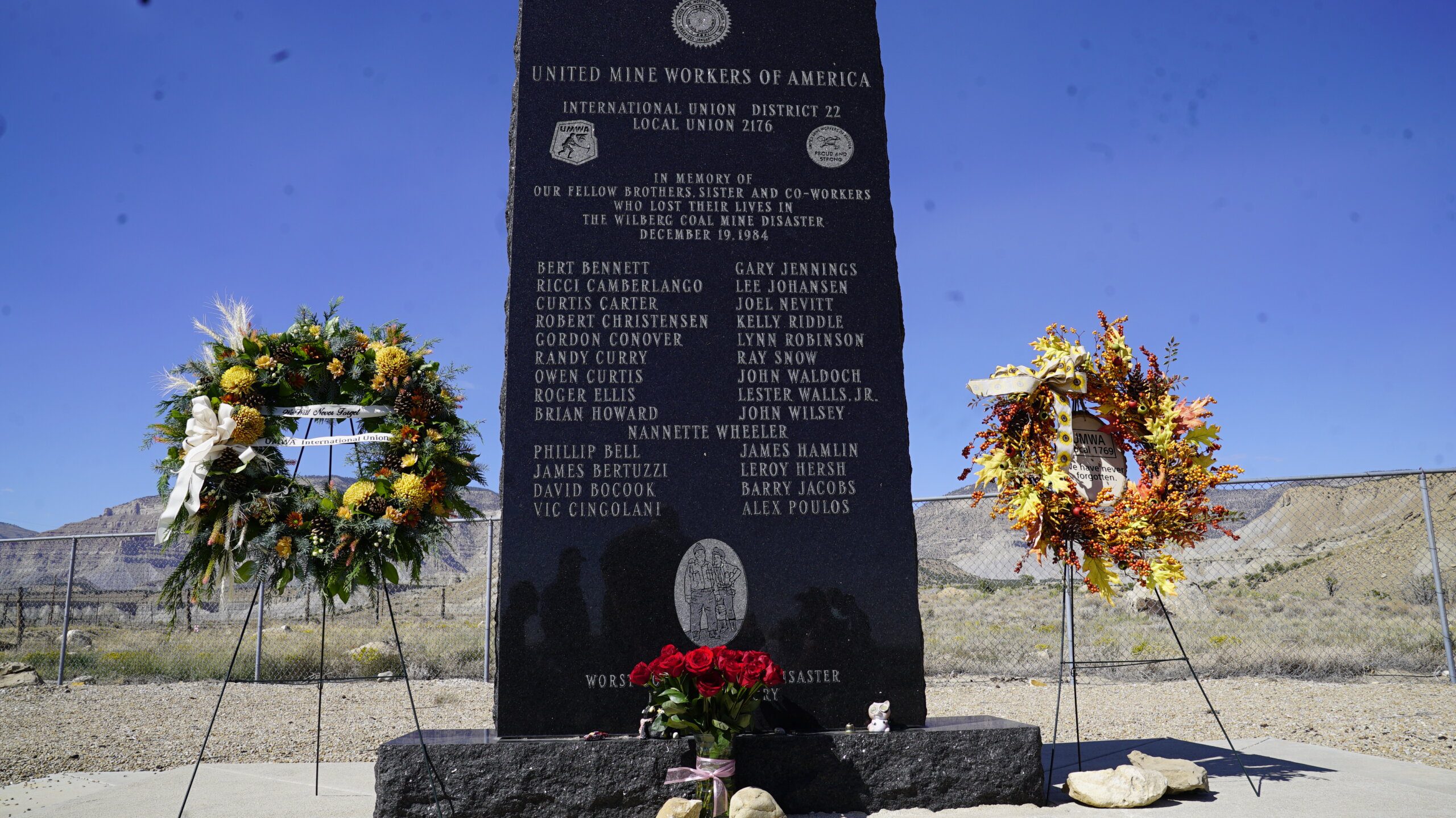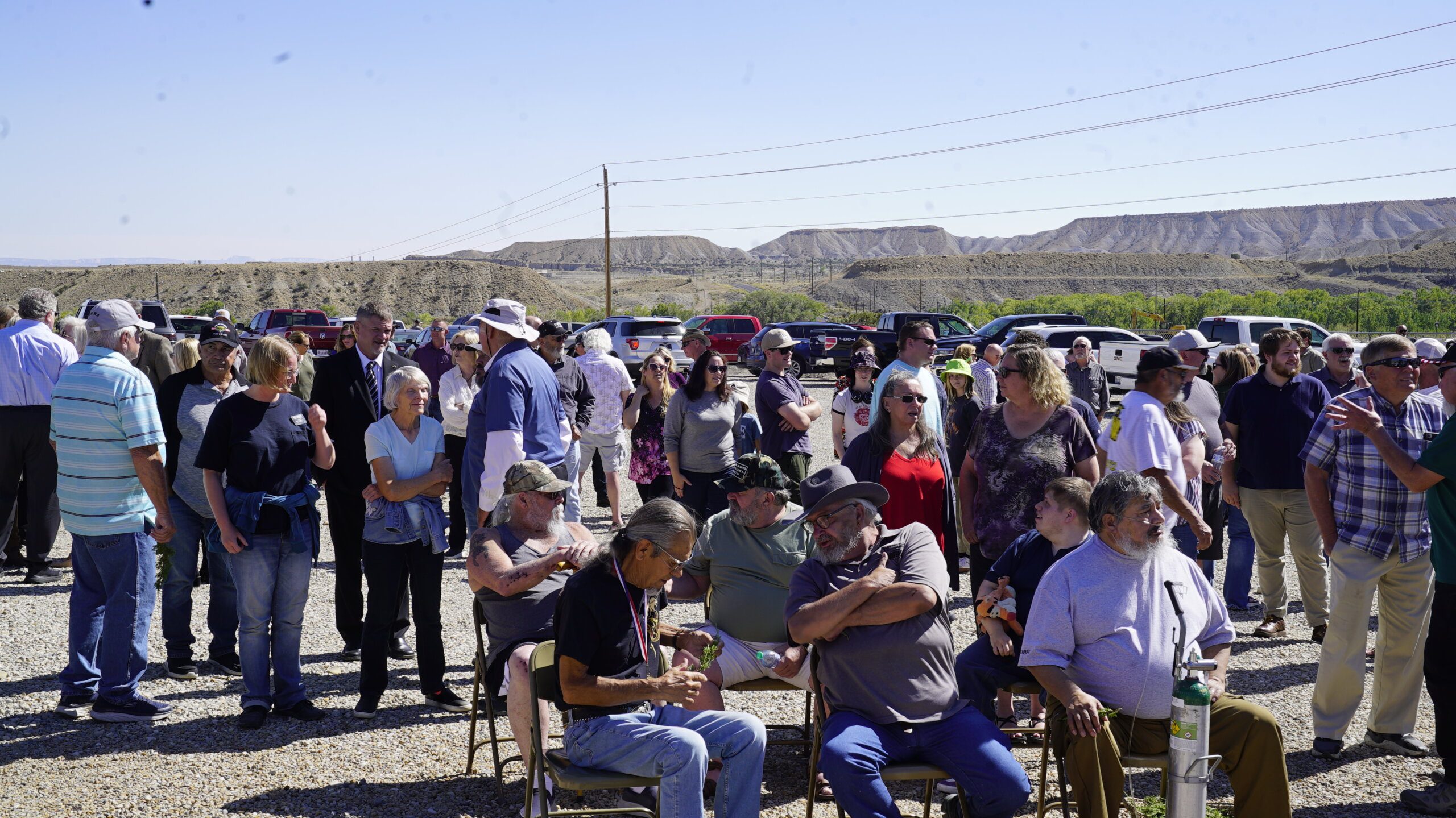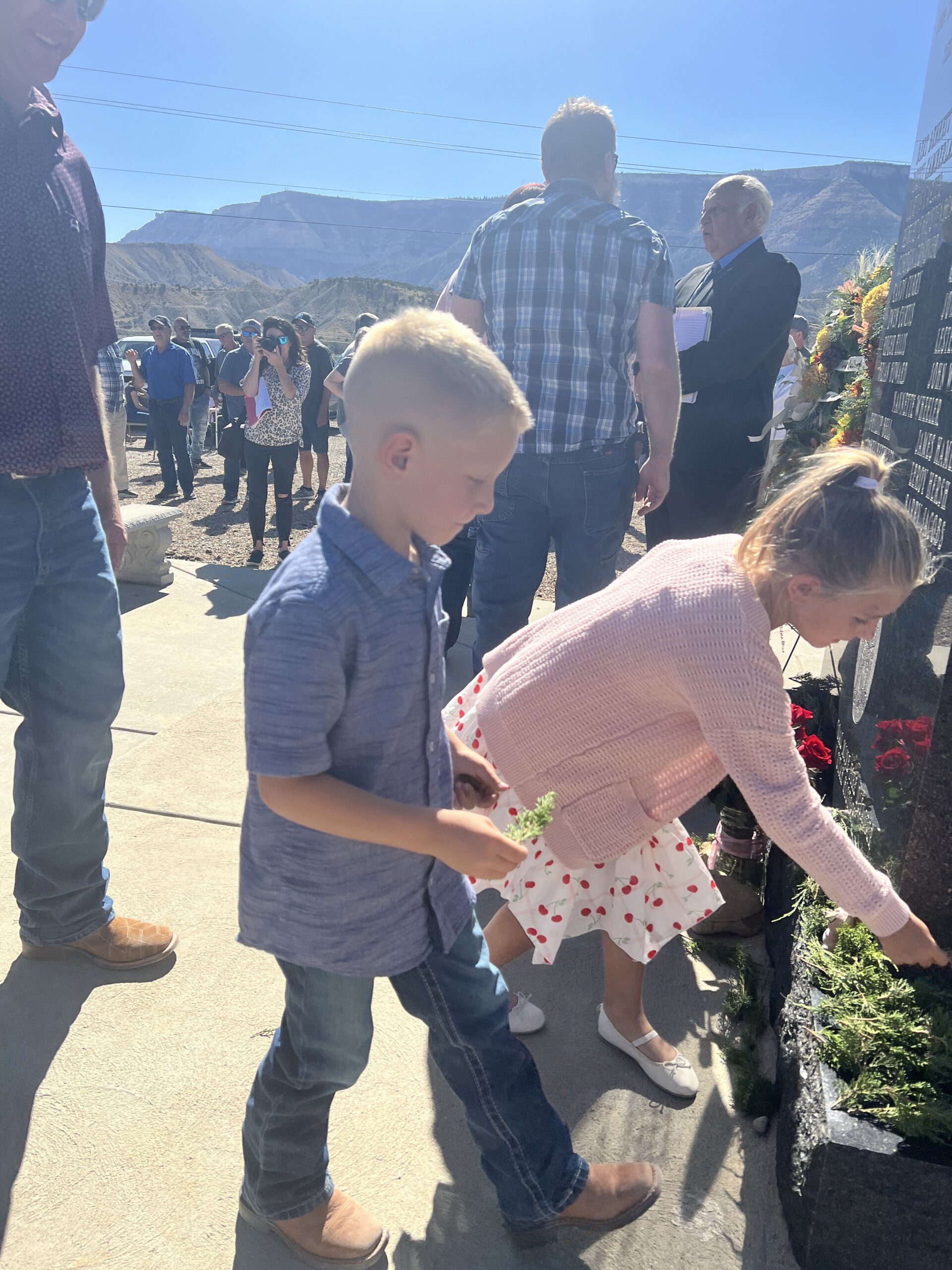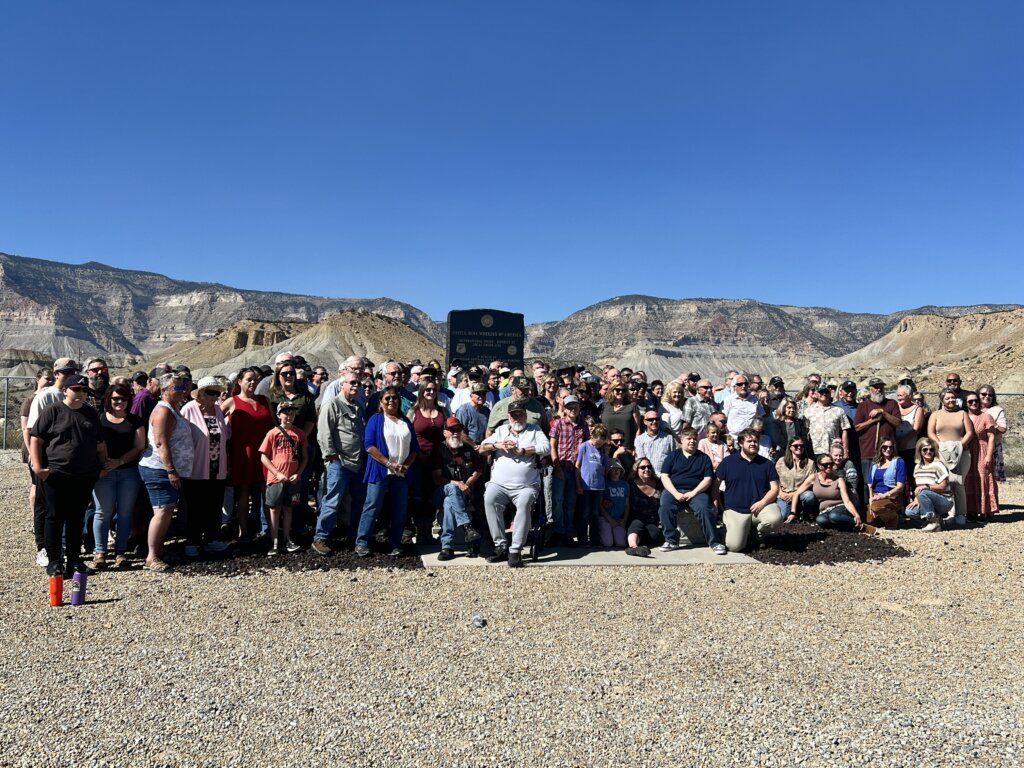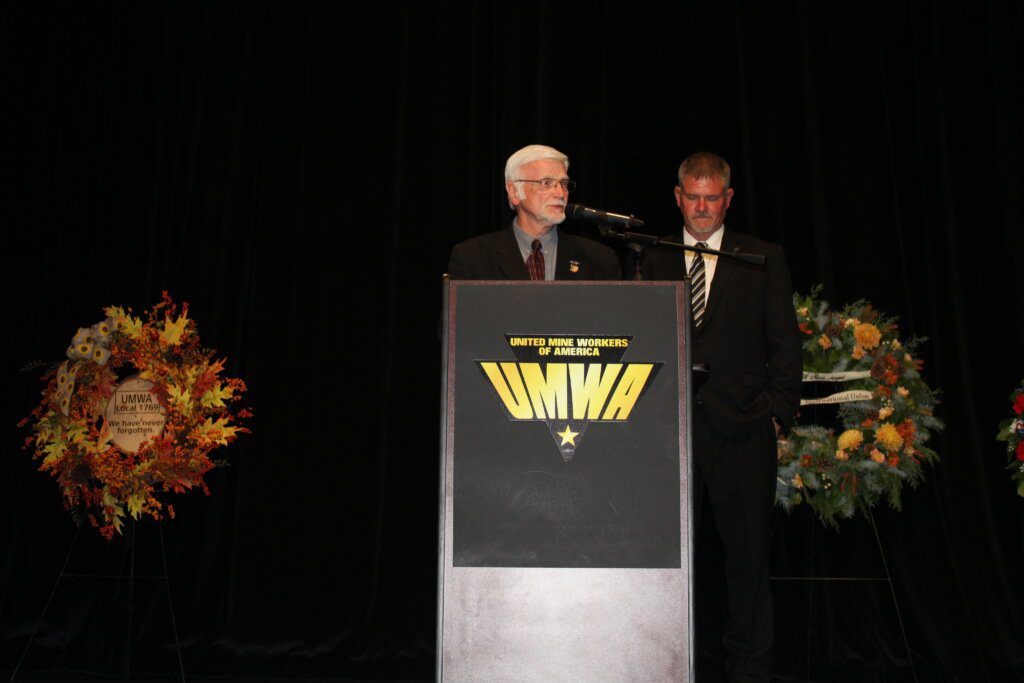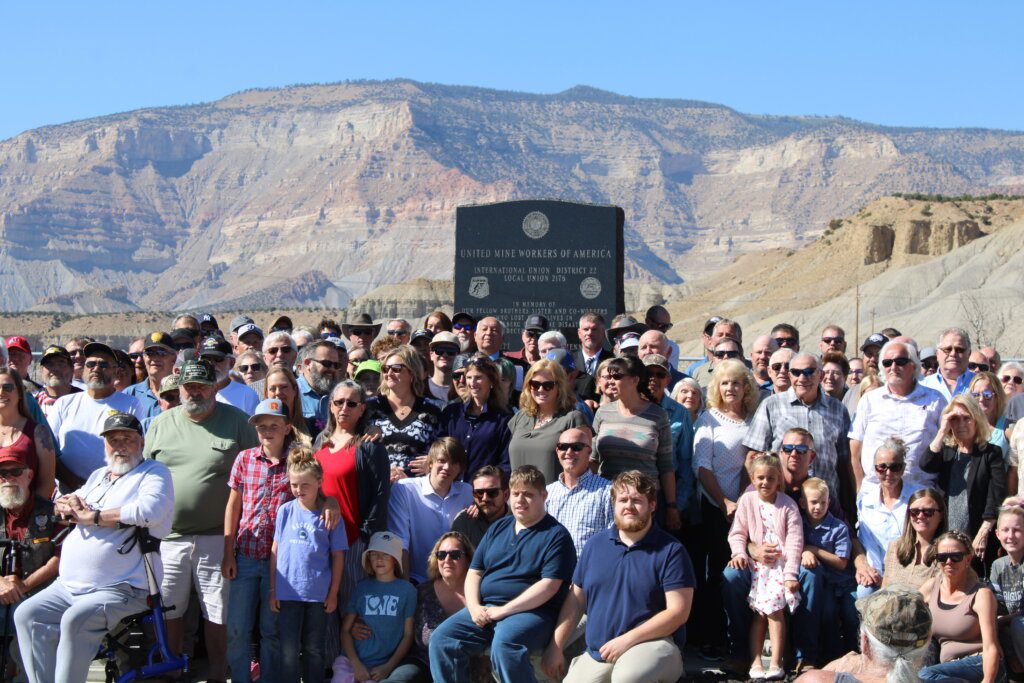
Source: ETV News
Date: September 27, 2024
History of Wilberg Mine Disaster
As the 40th anniversary of the most devastating coal mine tragedies in the state of Utah, as well as the United States slowly approaches, members of United Mine Workers of America (UMWA), surviving family members, friends, mine rescuers and others affected came together to honor those lost in the 1984 Wilberg Mine Fire.

On December 19, 1984, 27 families received the worst news imaginable: that a fire had broke out in the mine and their family members had been trapped inside. Efforts to save the trapped miners immediately went into effect.
Mine Rescue Teams from all over the state of Utah rushed to Wilberg mine to join in on the rescue efforts. Teams from Wyoming, Colorado and New Mexico, totaling 34 teams, had come down to aid in any way they could.
Unfortunately, days before Christmas, the Wilberg Fire proved to be something out of a horror movie as it quickly took over and, despite all efforts, they had no choice but to seal off the mine. Warren Oviatt, who was part of the fire rescue, described it as being the worst conditions and environment imaginable, comparing the heat to the flames of hell.
The fire reached all three entrances of the mine. Rescuers were forced to fill the entrances with sand and concrete. It would take almost an entire year before they would be able to unseal the mine and recover the bodies of the fallen coal miners. Those who took part in the rescue efforts, as well as family, friends, coworkers and community members vowed to “Never Forget” and they’ve held true to that promise as they once again came together to remember those lost.
Evergreen Ceremony Honors the Fallen at the Wilberg Memorial
On September 19, an “Evergreen Ceremony” was held at the Wilberg Memorial. International Vice President for District 22, Mike Dalpaiz, welcomed everyone to the ceremony before turning the time over to International President of UMWA, Cecil Roberts. Roberts explained the placing of the evergreen as the highest honor to those lost and as a token of respect. He invited attendees to come up and place an evergreen at the base of the memorial.

Lighting Ceremony Commemorates the Wilberg Mine Tragedy
Later that evening, UMWA held a “Lighting Ceremony” at the Geary Theater at USU, beginning at 6 p.m. The lighting ceremony began with the American Legion Post 3 presentation of colors and a prayer offered by Lou Shelley, UMWA District 22 Chaplain Corp.
Dalpaiz began his speech taking everyone back, 40 years ago, to the promise that they all made. He spoke about his many visits to the Wilberg Memorial because he refuses to forget. Dalpaiz then asked everyone to bow their heads and take a moment of silence to just remember.
“Each and every one of you, family members of the 27, I will say once again, as I’ve told you many times. If I meet you in church, if I meet you in a grocery store and when I met you 40 years ago, I am sorry,” expressed Dalpaiz.
Dalpaiz spoke about the many visits he had with the family members left behind, discussing the help they’ve always provided to those families, once again promising that he has never forgotten a single family. Dalpaiz thanked the Wilberg Committee who came together to help put together the two ceremonies and ensuring that it all came together.
Dalpaiz then provided a small introduction to who he described as his “dear friend, my brother, Joe Main.” Dalpaiz spoke about the years Main spent in the area during the disaster, the recovery and to help correct the many safety issues that the mine still faced. Main was instrumental in correcting those issues. Dalpaiz advised that, together, he and Main faced Congress in several fights to change safety regulations. Main is now the retired Assistant Secretary of Labor for Mine Safety and former UMWA Administrator of Occupational Health and Safety.
Dalpaiz then spoke about the unbreakable bond that coal miners have to each other. Dalpaiz discussed that many of the miners working at Wilberg in 1984 were Veterans and had truly seen the worst, particularly in Vietnam, but none of them had seen anything like this disaster.
Dalpaiz wanted to also take time to remember those in the background. The ones that are often forgotten. The cleaning staff that kept things cleaned as best as they could, the benchmen who worked their fingers to the bone to ensure that the aspirators were working properly, those who gathered necessary equipment, those who kept food in their mouths.
“You are my heroes and thank you,” expressed Dalpaiz as he brought his speech to an end.

Main was the next guest speaker for the Lighting Ceremony. Dalpaiz once again gave a very sincere introduction to Main.
Main advised that when Dalpaiz asked him to attend this event, there was no way he would miss it, because this event carries the biggest weight in his heart. Main discussed the timing of the disaster having happened mere days before Christmas and the toll it took not only on the families, but the entire community, during a time that is supposed to be filled with love and joy. Main became emotional as he discussed having to deliver that kind of information to the miner’s families.
Main expressed gratitude for those who were and are part of a mine rescue team, because when things like this happen, they will put their lives at risk to save their fellow brother or sister.
“I can tell you something about the mine workers. We make a commitment when these things happen that the miners who lost their lives in the mines would not die in vain,” expressed Main.
Due to the tragedy at the Wilberg Mine on December 19, 1984, actions were taken, laws were passed and rules were changed to ensure that this kind of tragedy would never happen again. Main discussed the many things that were learned because of the Wilberg tragedy and he made it his mission to change things.
Main then stated that forgetting past disasters is simply not an option. Forgetting the grief and the toll it takes on the families is not an option. Forgetting the devastation amongst the community is not an option.
“We must keep remembering these to make sure that these never happen again,” expressed Main.
Ben Jones then beautifully sang “Amazing Grace”, with many attendees bowing their heads in remembrance to loved ones lost.
A slideshow was played, displaying the names of each of the miners lost, as Dalpaiz announced their names. As each name was called, a light representing each miner was illuminated by a family member. Dalpaiz asked attendees to look at the lights glowing on the wall and reminded everyone that their loved ones are always with them.
Dalpaiz then introduced the next guest speaker, Brian Sanson, coined as one of the youngest leaders in the union. He is in charge of health and safety and is the International Secretary-Treasurer for UMWA.
Sanson wanted to express the absolute honor he felt to have been asked to be a speaker and promised to do his best to honor and respect those who lost their lives during this tragic event. Sanson discussed being only 11 years old when the Wilberg disaster happened. He discussed being able to read about things in a book or online, though a person truly does not get it until actually talking to those involved, or the family members.
Sanson discussed the obligation that they have as leaders to remember the miners lost and families affected by their loss, because the moment they forget will be the moment they are faced with more lost coal miners and more families affected by a tragedy that could have been prevented.
“It’s amazing that coal miners don’t get more recognition; they power this nation, they die in the mines. It takes a mine disaster of huge magnitude to even pass basic Federal legislation to make miners safe,” expressed Sanson. “America wouldn’t be the world power it is today without these miners and we owe them our gratitude.”
Sanson then thanked those in attendance for allowing him to speak, saying what an honor it was to be there. Sanson introduced International President of UMWA, Cecil Roberts.

Roberts was the last speaker of the ceremony, to which he offered thanks to the amazing leadership that Dalpaiz has provided. Roberts spoke about the ones who were in charge of inspecting the mine during the early stages of the disaster and the dedication that Main has for mine safety, as well as the hours that he has worked to ensure that things are done better and safer.
Roberts then paid homage to the many mine rescuers who were there risking their own lives to try and save their fellow miner. Roberts asked for the Wilberg Mine Rescuers in the audience to stand up and asked that everyone give them a round of applause.
Roberts then began to discuss the ongoing safety issues that present-day coal miners are still facing. Roberts spoke about the thousands of coal miners who continue to die due to black lung. Roberts expressed his extreme frustration with those in congress for not allowing certain bills to pass that would save coal miner’s lives.
“My job is to save peoples lives and you can’t save peoples lives when looking the other way, acting like something doesn’t exist,” expressed a frustrated Roberts.
Roberts then spoke about the true heroes from this disaster, speaking about the families and spouses that were left to deal with the aftermath.
“The person who was making a living to support that family is not there anymore. They lost a loved one, that’s devastating, there’s a car payment to be made, a house payment to be made, college to be paid for, and the income to that family stopped right there,” expressed Roberts in an outburst of emotion.
Roberts’ speech brought the Lighting Ceremony to an end. Attendees were then given a small UMA Wilberg Mine Clock commemorating the 40th anniversary.

Warren Oviatt Revisits Wilberg Mine Fire History
Family was invited to a Wilberg Mine history lesson by Warren Oviatt the following day, at the Wilberg Memorial located below the mine. Oviatt provided family members copies from pictures taken during the Wilberg Fire and proceeded to share in detail what happened, start to finish. Oviatt spoke about the horrific conditions that mine rescue teams were faced with. Oviatt and family then took a drive up as close as they could to the entrance to the mine which has since had the road blocked off.
If there’s one thing one could take away from the remembrance ceremonies held for those lost in the Wilberg Mine Fire of 1984, it is they will never be forgotten.
Those to never be forgotten are: Phillip Bell, Bert Bennett, James Bertuzzi, David Bocook, Ricci Camberlango, Curtis Carter, Robert Christensen, Vic Cingolani, Owen Curtis, Gordon Conover, Randy Curry, Roger Ellis, James Hamlin, Leroy Hersh, Brian Howard, Barry Jacobs, Gary Jennings, Lee Johansen, Joel Nevitt, Alex Poulos, Kelly Riddle, Lynn Robinson, Ray Snow, John Waldoch, Lester Walls Jr., Nannette Wheeler and John Wilsey.
Written By: Brittnie Anderson

